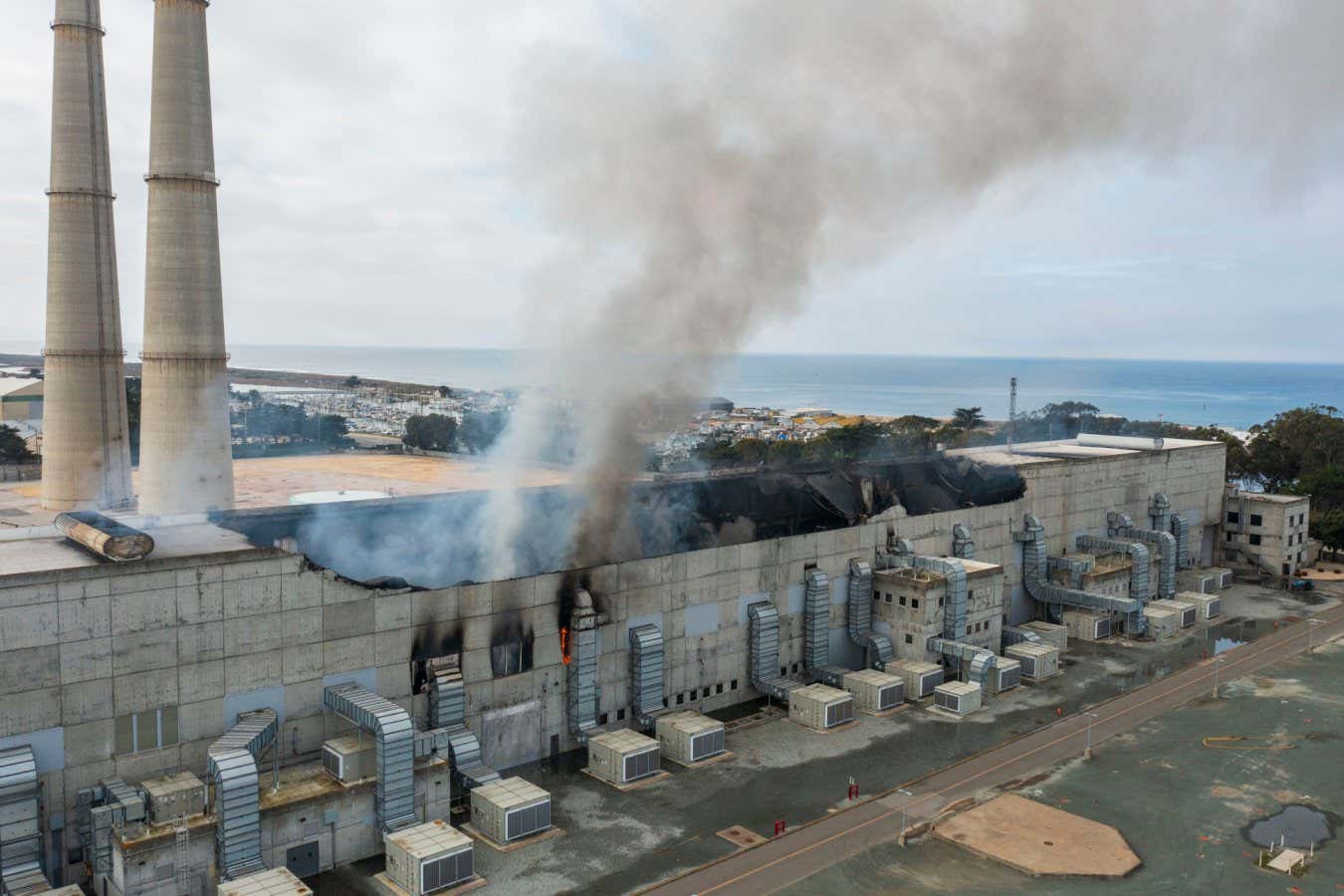A fire at Vistra Energy’s Moss Landing battery storage facility in California destroyed thousands of lithium batteries – and a significant amount of the state’s clean energy storage capacity
By Jeremy Hsu
17 January 2025
Smoke rises during a fire at Vistra Energy’s Moss Landing battery storage facility in California on 17 January
Bloomberg / Getty Images
A fire at the world’s largest battery storage plant in California destroyed 300 megawatts of energy storage, forced 1200 area residents to evacuate and released smoke plumes that could pose a health threat to humans and wildlife. The incident knocked out 2 per cent of California’s energy storage capacity, which the state relies on as part of its transition to use more renewable power and less fossil fuels.
The fire started the afternoon of 16 January, burning through a concrete building full of lithium batteries at the Moss Landing Energy Storage Facility in Monterey county, California. Other buildings on the site, including more battery storage facilities and a natural gas plant, were not affected. By the morning of 17 January, local officials reported minimal flames and smoke.
Read more
Is a broken jet stream causing extreme weather that lasts longer?
Advertisement
“This is really a lot more than a fire, it’s a wake-up call for this industry,” said Glenn Church, a member of Monterey county’s board of supervisors, during a press conference. “If we’re going to be moving forward with sustainable energy, we need a safe battery system in place.” After the press conference on the morning of 17 January, the blaze flared up again that afternoon, leading to an extension of the evacuation order.
Because lithium fires burn at high temperatures and emit toxic substances such as hydrogen fluoride, firefighters let this type of blaze burn itself out rather than engaging with it directly. There have been no reports of injuries associated with the fire, and air monitor systems did not detect any signs of hydrogen fluoride. But the smoke plumes from the fire are likely to have contained heavy metals and PFAS, better known as forever chemicals, says Dustin Mulvaney at San Jose State University in California.
Local officials are currently advising residents of Monterey county to stay indoors and keep their doors and windows closed. Inhaled heavy metals and PFAS could pose a health risk to area residents and farm workers. These substances could also impact wildlife such as the sea otters that live in the wetlands of the nearby Elkhorn Slough salt marsh, says Mulvaney.
